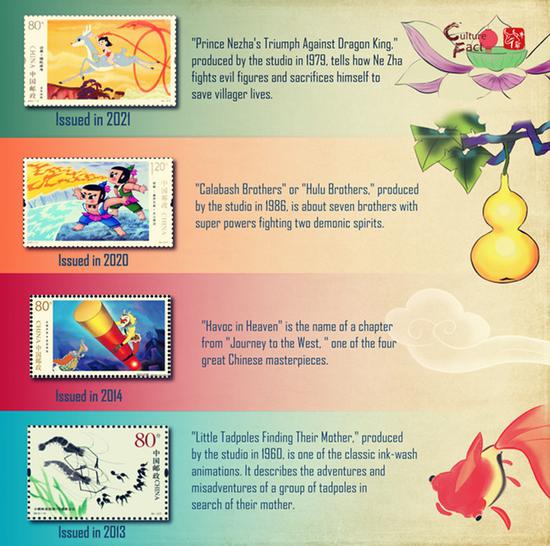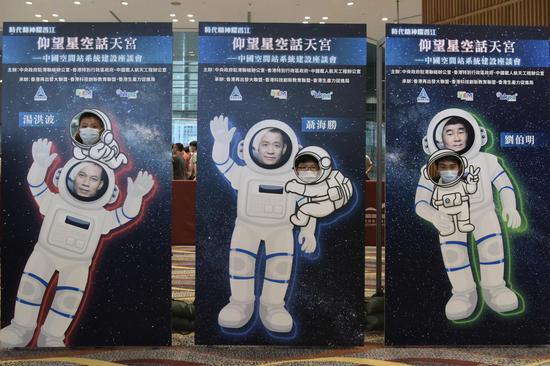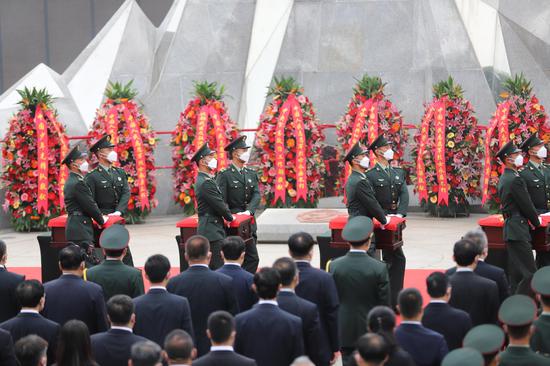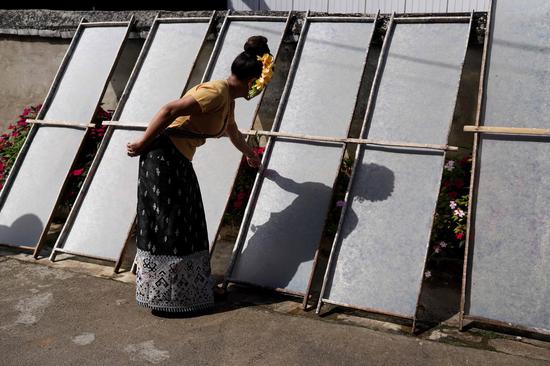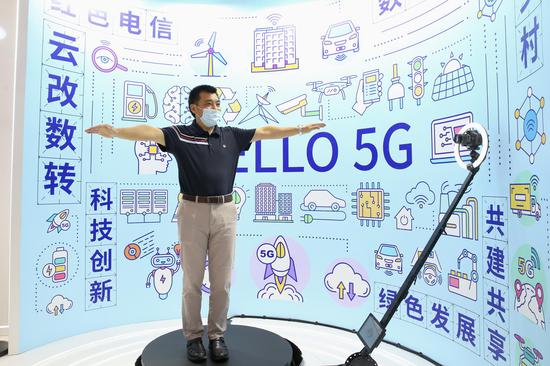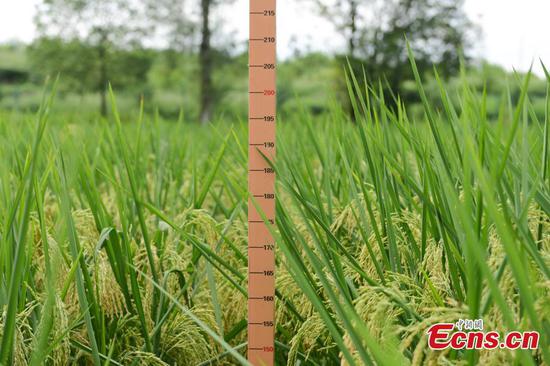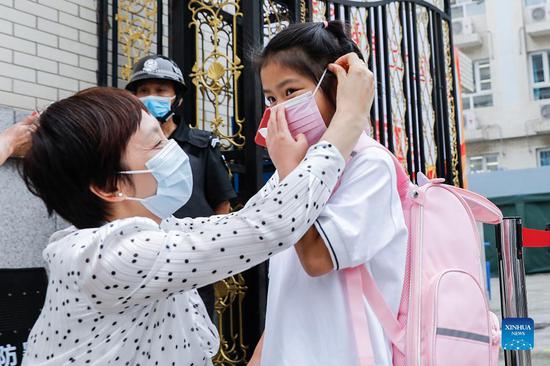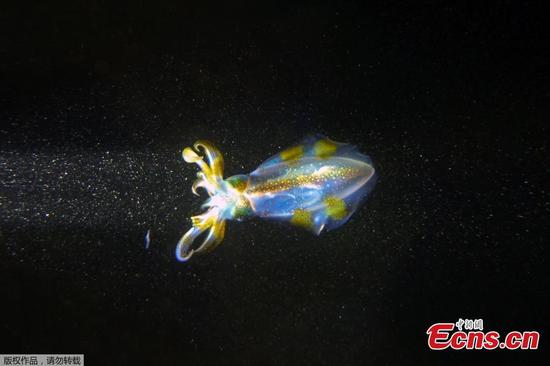
Photo provided by Fudan University shows the conceptual model of wearable lithium-ion fiber batteries on Sept. 2, 2021. (Xinhua)
Chinese scientists have realized the scalable production of high-performing woven lithium-ion fiber batteries, bringing wirelessly charging electronics via clothes one step closer to reality.
Researchers from Fudan University have recently published their relevant study in Nature journal, suggesting how the internal resistance of such fibers changes with their lengths, theoretical support for developing secure lithium-ion fiber batteries.
The one-meter-long fiber developed by the research team is proven to be capable of powering wearable electronics including smartphones, smart bracelets and heart rate monitors continuously for a long period of time.
Its capacity retention remains about 90.5 percent after 500 charge-discharge cycles and over 80 percent of capacity can be maintained after bending the fiber for 100,000 cycles, according to the paper.
Previously, the length of such batteries remained in the centimeter scale, making weaving the fibers into textiles impossible.
Based on the new discovery, the researchers have managed to make high-performing woven lithium-ion fiber batteries. After being integrated with wireless charging launchers, the textiles can become flexible and stable power solutions for smartphones, said the team.








